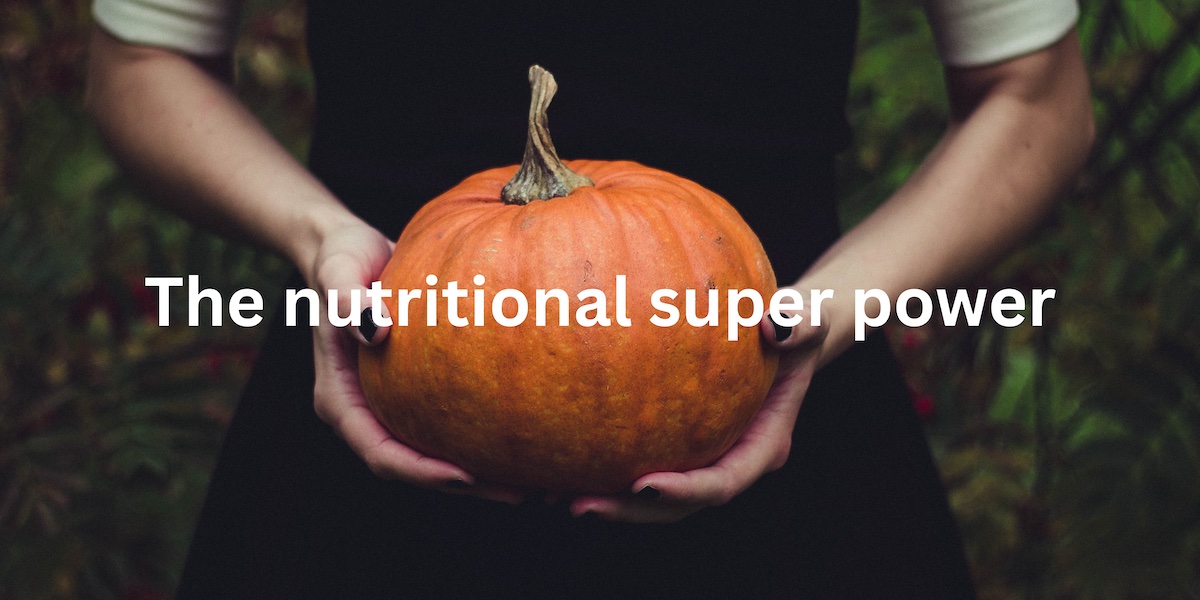


Introduction:
It’s pumpkin carving season again, but how often do we actually talk about eating them? This question got us at the Women’s Health Club curious. Are pumpkins a hidden superfood we’ve been missing out on? After diving into some research, we’re starting to think we may have been missing a trick or two.
Don’t be fooled by its playful association with Halloween; pumpkins are a nutritional powerhouse. Just one cup of cooked pumpkin provides a mere 49 calories, yet is packed with vitamins, minerals and antioxidants. You’ll receive a generous dose of Vitamin A, vital for eye health and immune function, as well as a boost of Vitamin C, potassium, copper, manganese and more. Not to mention, pumpkins are composed of 94% water, making them a hydrating and low-calorie option.
Pumpkins are brimming with antioxidants such as alpha-carotene, beta-carotene and beta-cryptoxanthin. These compounds play a crucial role in neutralising free radicals, protecting your cells from damage and potentially reducing the risk of chronic diseases. While more research is needed to solidify these benefits in humans, the potential health impacts of these antioxidants are promising.
With its impressive content of Vitamins A, C and E, along with minerals like iron and folate, pumpkins are a fantastic food for bolstering your immune system. These nutrients work in tandem to enhance the functionality of your immune cells, helping to ward off infections and promote overall health.
Heart health is at the forefront of many people’s health concerns and incorporating pumpkin into your diet may be a step in the right direction. The potassium, fibre and Vitamin C content in pumpkins all contribute to a healthy heart, helping to reduce blood pressure, lower LDL cholesterol and decrease your risk of stroke.
Pumpkins offer a bounty of benefits for your skin, thanks to their rich content of beta-carotene, Vitamin E and Vitamin C. These nutrients aid in the repair and growth of skin cells, combat damage from free radicals and may even protect your skin from the harmful effects of UV rays.
A diet rich in beta-carotene from pumpkins has been linked to a reduced risk of certain cancers, including prostate and lung cancer. Additionally, pumpkin seeds have been found to play a role in preventing breast cancer in postmenopausal women.
The tryptophan found in pumpkin seeds is not just beneficial for Thanksgiving turkey; it also plays a role in the production of serotonin and melatonin in your body. These compounds have mood-boosting properties and can help ensure a good night’s sleep.
From soups and stews to cakes and smoothies, pumpkins are an incredibly versatile ingredient. You can roast or steam the flesh, snack on the seeds, or add pumpkin puree to a variety of recipes for a nutritional boost.
The beta-carotene, lutein and zeaxanthin in pumpkins are all vital for maintaining good eyesight, reducing the risk of macular degeneration and protecting against other age-related eye diseases.
Summary:
Pumpkins are more than just a Halloween decoration; they are a nutritional goldmine with a plethora of health benefits. From boosting your immune system and protecting your heart to promoting healthy skin and eyesight, this autumnal fruit has it all.
So, this Halloween, as you carve your pumpkins, remember to save some pumpkin for your plate too.
